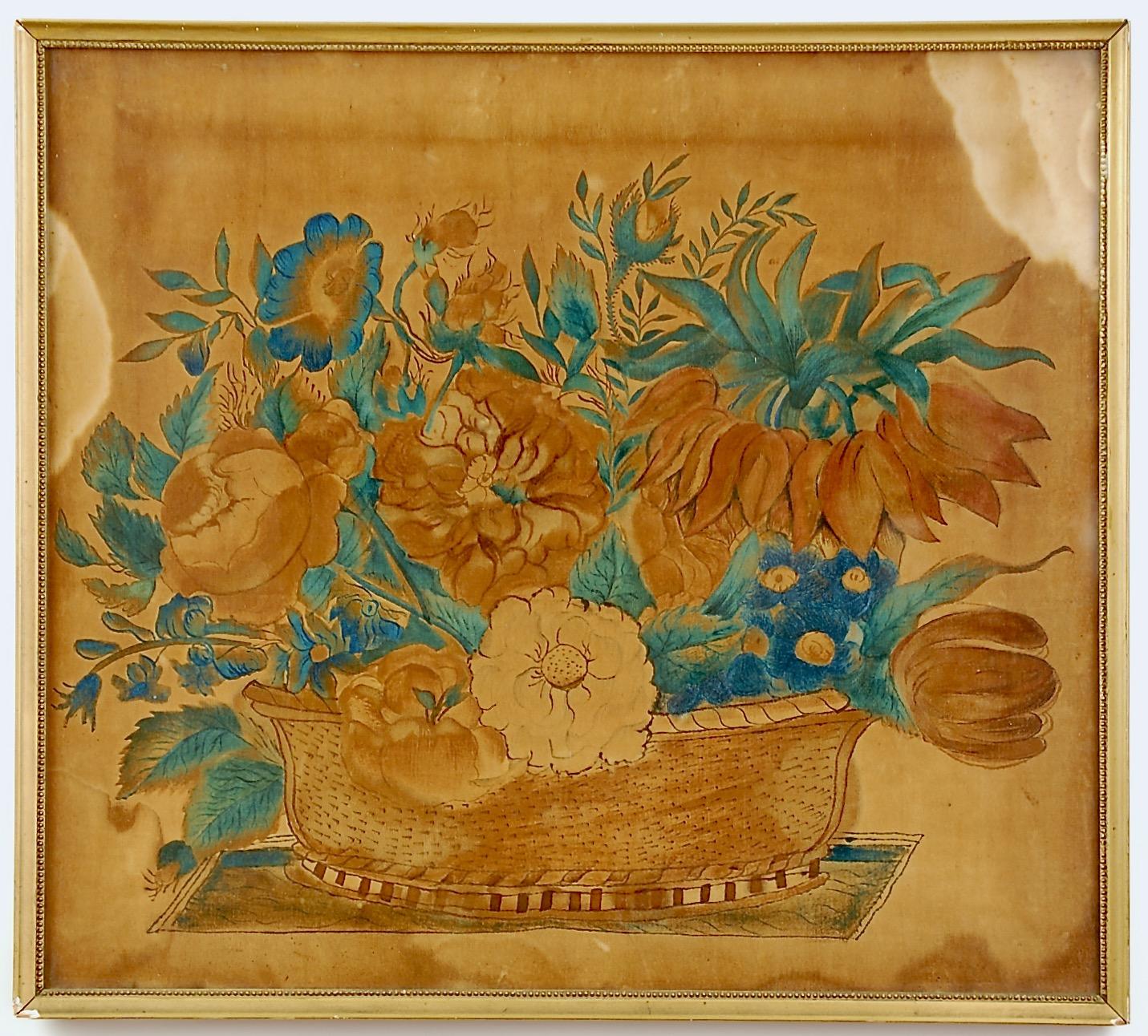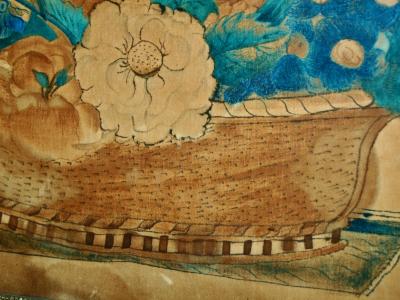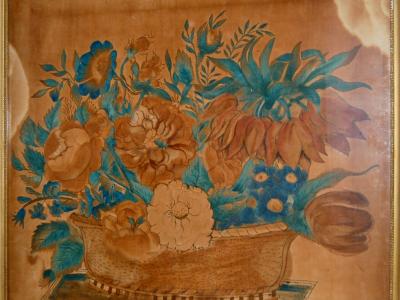Theorem painting
Odessa, Delaware
1820-1835
Maker
Probably Sarah Clark Corbit (1810-1871)
Measurements
16-1/4 in x 18-1/8 in; sight, 15-1/4 in x 17-1/8 in
Materials
Watercolor on cotton velvet
Credit Line
Historic Odessa Foundation
Accession Number
1986.13
Condition Notes
The velvet on which the theorem is painted is stained. Fugitive colors have faded.
Provenance
The theorem painting descended in the William Corbit family through Sara Corbit Levis to Mary Corbit Crowe to her niece Sara Corbit Reese Pryor, from whom it was acquired by Winterthur in trade and transferred to the Historic Odessa Foundation in 2005.
Comments
This theorem is a useful example of how and why some individuals have been identified as the makers of certain textiles and drawings at Historic Odessa. The theorem was acquired by Winterthur for the houses in Odessa as part of larger group of furnishings believed to have been owned originally by the William Corbit family. The last private owner, Mrs. Samuel F. (Sara Corbit Reese) Pryor, a direct descendent of William Corbit, was eager that her furnishings (as well as those of other family members) were returned to Odessa for installation in the house. Connecting the probable date of manufacture of the theorem with the most probable maker in Pryor’s direct line of descent yields Sarah Clark Corbit (1810-1871).
The group of Pryor furnishings included a Pembroke table, acc. no. 1986.12. The Pembroke provenance, part of the same acquisition transaction as the theorem painting, is recorded in a letter dated March 8, 1978, from Mrs. Samuel F. (Sally Corbit Reese) Pryor III to John A.H. Sweeney; see a copy in the Pembroke object folder, Historic Odessa Foundation.
When Sarah executed this theorem, she followed broadly acknowledged preferences expressed in "domestic economy" and related how-to books of the time. They advised using only the best cotton velvets, good watercolors and brushes, etc. Recommended subjects included flowers, especially roses, and ripe fruits. This theorem displays a basketful of lush flowers, although colors have faded dramatically.


